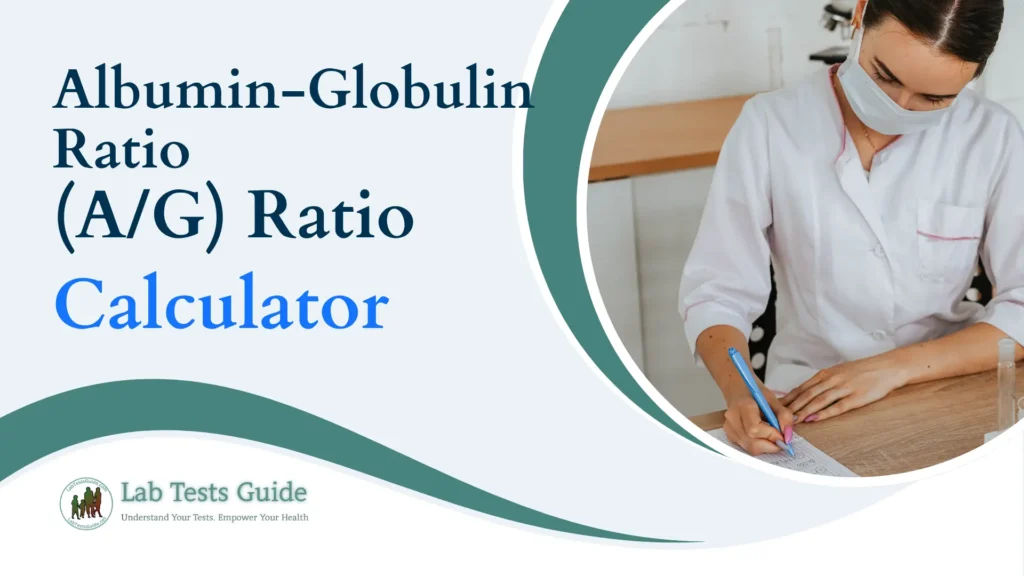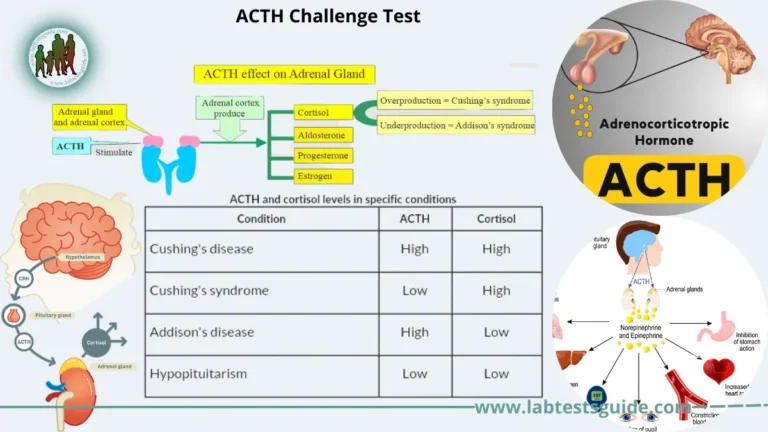The Albumin-Globulin (A/G) Ratio Calculator evaluates the balance between albumin and globulin proteins in blood, aiding in the diagnosis of liver disease, kidney disorders, and immune system conditions.

Formula:
Or
Note: Globulin is often calculated as:
Globulin (g/dL) = Total Protein (g/dL) – Albumin (g/dL)
🧮 Albumin-Globulin (A/G) Ratio Calculator
📐 Formula:
🖊️ Enter the Values:
Step-by-Step Calculation
- Input Lab Values:
- Albumin (g/dL) = 4.0
- Total Protein (g/dL) = 7.0
- Calculate Globulin (if needed):
Globulin (g/dL) = Total Protein (g/dL) – Albumin (g/dL)
Globulin (g/dL) = 7.0 (g/dL) – 4.0 (g/dL) = 3.0 (g/dL) - Compute A/G Ratio:
Normal Range
| Group | Normal A/G Ratio |
|---|---|
| Adults | 1.1–2.5 |
Clinical Interpretation
| A/G Ratio | Possible Conditions |
|---|---|
| High (>2.5) | – Dehydration – Hyperalbuminemia – Hypogammaglobulinemia |
| Low (<1.1) | – Liver cirrhosis – Nephrotic syndrome – Chronic inflammation – Multiple myeloma |
Example Scenarios
| Albumin (g/dL) | Globulin (g/dL) | A/G Ratio | Interpretation |
|---|---|---|---|
| 4.5 | 2.5 | 1.8 | Normal |
| 3.0 | 4.0 | 0.75 | Low (Liver/kidney disease) |
| 5.2 | 1.8 | 2.9 | High (Dehydration) |
Key Notes
- Albumin: Maintains osmotic pressure; synthesized by the liver.
- Globulins: Include antibodies (immunoglobulins), enzymes, and transport proteins.
- Critical Use Cases:
- Evaluate liver/kidney dysfunction.
- Screen for multiple myeloma (low A/G ratio with elevated globulins).
- Limitations:
- Non-specific – always correlate with clinical symptoms and other tests (e.g., LFTs, SPEP).
Quick Reference Table
| Test | Normal Range | Role |
|---|---|---|
| Albumin | 3.5–5.5 g/dL | Reflects liver function |
| Total Protein | 6.0–8.3 g/dL | Includes albumin + globulin |
| Urine Protein Electrophoresis | – | Diagnose myeloma/kidney disease |







